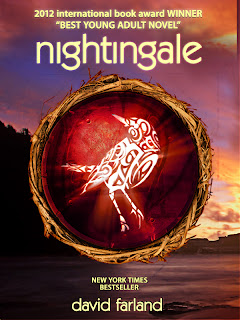“I felt like a snake
having to shed its old skin... I mourned each layer of myself as I
imagined it loosening and separating from me before I sloughed it off
and watched it fall to the ground: my resilient good health, my
identity, my hopes for a vibrant future. The shedding of each
successive layer left me even more naked, raw and vulnerable. At that
point, I had no sense that there was any regeneration underway or
that there would be anything to replace the parts of myself I was
losing.”
Being
diagnosed with breast cancer changes you, irrevocably. In But
Hope is Longer, Tamara Levine
writes beautifully of her own transformative process. She also, in
sections called Reflections,
looks back on her experience with the benefit of time and a
clear-eyed analysis. Finally, she interviews all of her caregivers
from those at the cancer centre, to her naturopathic doctor to her
life coach - bringing together their insights on treatment and
patient care. The result is a book like no other.
For
Tamara, the writing process began with a series of Healing
Journey letters she wrote to
family and friends. In these letters, she brings loved ones up to
speed on what is happening with her but also shares her feelings,
observations and the things she learns along the way. These letters
helped Tamara to rediscover her love of writing and with these
stories she shares her experiences from medical mishaps and
mismanagement, getting on the right track, her celebration of
friends, feelings about physical changes and the loss of her beloved
father to leukemia. These are the pieces that very frequently left me
with a lump in my throat.
In
the sections she called Reflections, Tamara
fill us in a bit more on what was happening during the times she
wrote the letters. She also thinks back on the decisions she made,
sometimes critically. Tamara doesn't mince words here, as she relays
interactions with those closest to her and the experiences that were
part of the treatment process. Most important of all, she concludes
that the most serious flaw in breast cancer treatment in Canada is a
lack of coordination across treatment areas (the caregivers
themselves speak of working in “silos”) and makes the
recommendation that this be addressed in the form of a “nurse
navigator.”
“If
we were to imagine a better process...what would it look
like?...there is a centre for where women go for 'one stop shopping'
for all the diagnostic and planning steps leading up to treating
their breast cancer...We are warmly greeted by a nurse who has been
specially trained for her role as 'navigator' who has taken the time
to become thoroughly familiar with our file...she advises us as to
what lies ahead, at least in the short term...She is available to us
throughout the journey.”
This
vision would transform the experience of cancer patients. I'm
convinced it would also improve outcomes. I hope someone at my cancer
centre who is in a position to create change reads this advice and
takes it to heart.
The
last thing Tamara does is interview her caregivers. Their comments
are interspersed throughout and included in Voices of the
Healers. Each one clearly cares
about the outcome of every patient and all bemoan the lack of
cooperation between treatment teams. In particular, I was struck by
the willingness of the 'mainstream' oncologists and surgeon to engage
with Tamara's naturopathic doctor as well as the humility and wisdom
of each person who was interviewed. I've never seen the words of
healers collected in this way and the result is powerful.
The
very best of books stay with the reader and may even influence how
they live their lives. As an ongoing cancer patient, I was very moved
by But Hope Is Longer.
I also initiated my own relationship with a naturopathic doctor (ND)
after reading Tamara's book. My new doctor specializes in oncology
and I'm very excited and grateful for this new relationship.
But Hope Is Longer
is compulsively readable, full
of clear, useful advice and includes the perspectives of those who
spend their days thinking about how to better care for cancer
patients. More than a breast cancer memoir, this is a book that
everyone will want to read.













